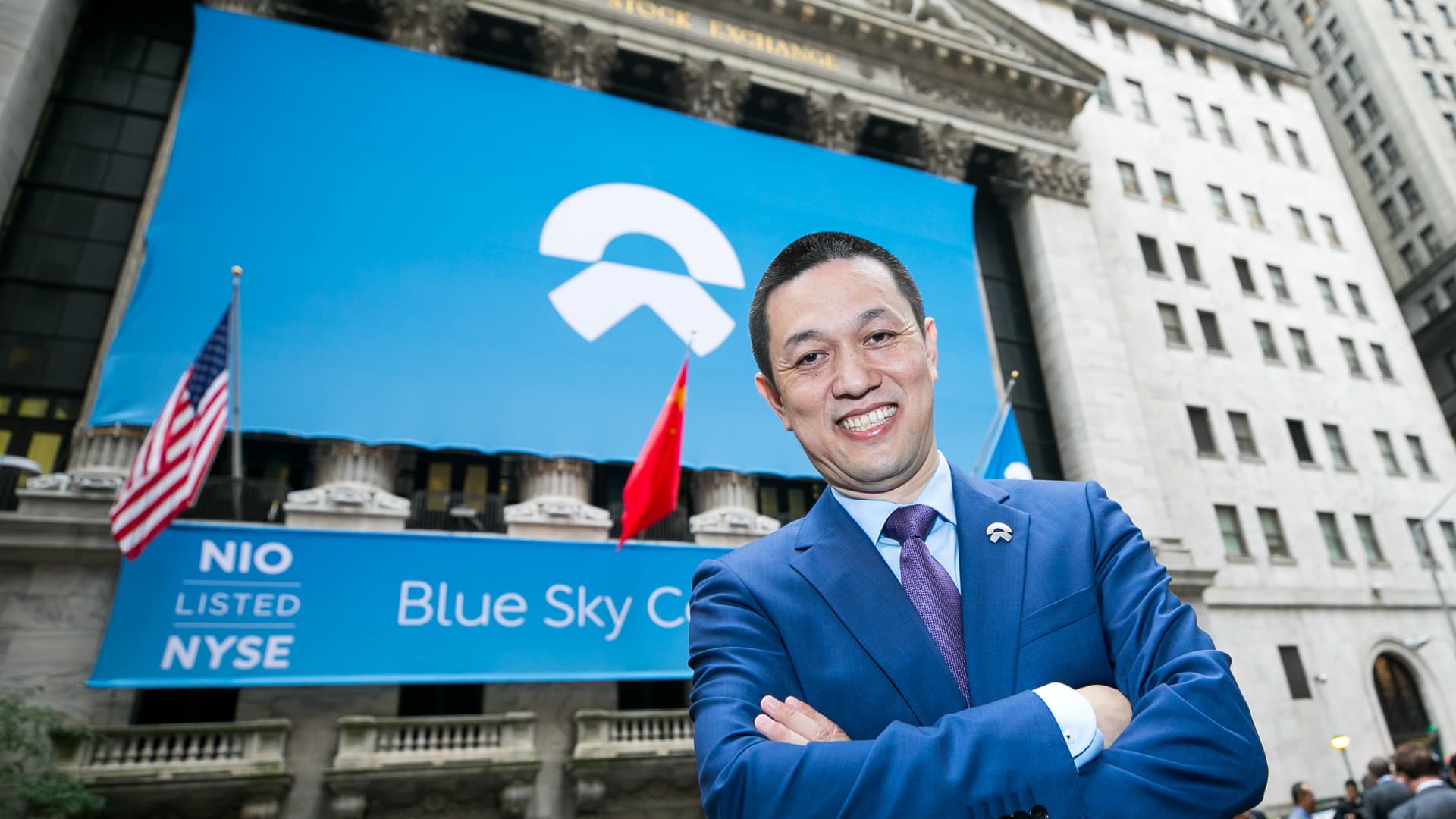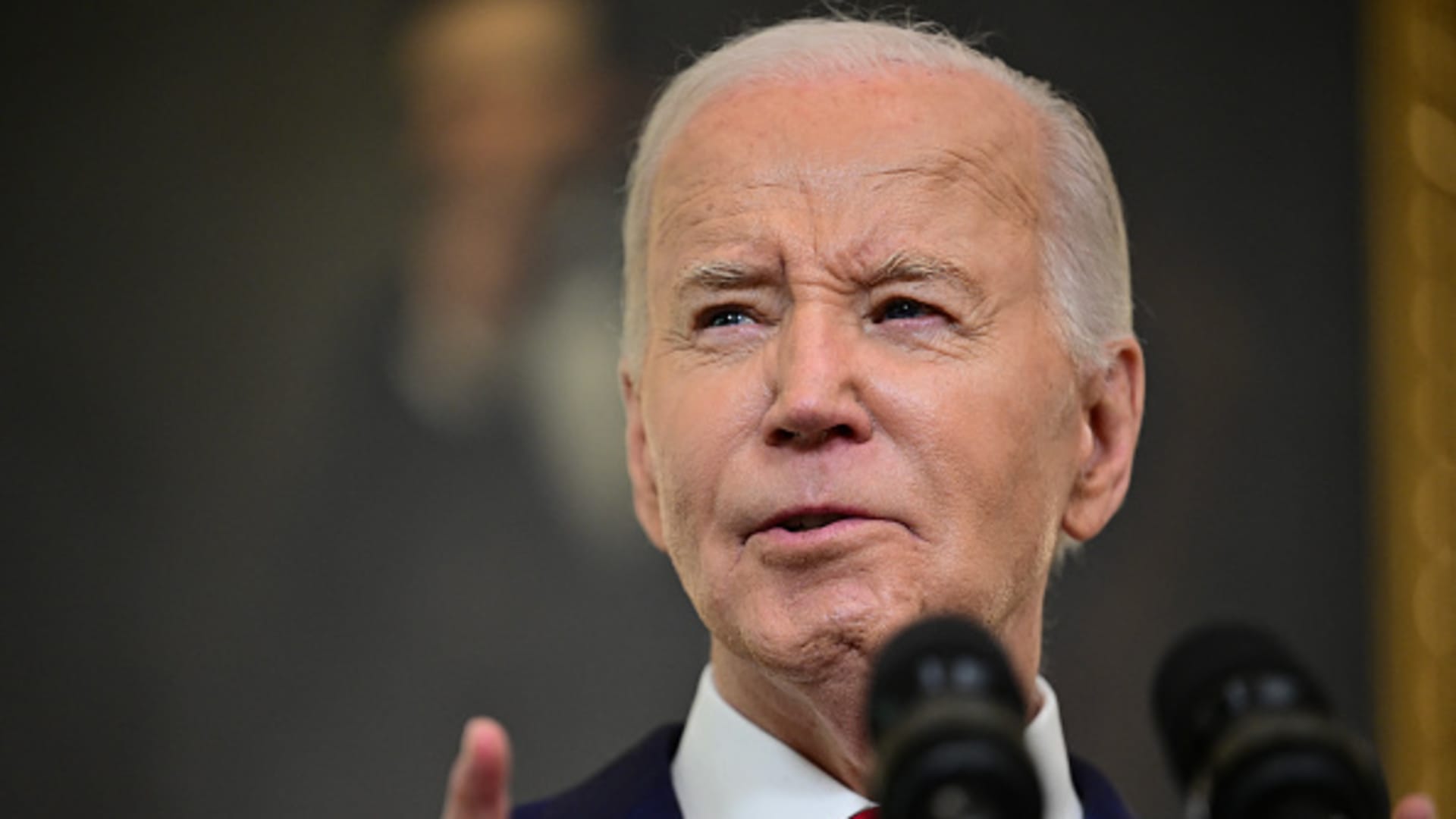A bank employee counts China’s renminbi (RMB) or yuan banknotes next to U.S. dollar banknotes at a Kasikorn bank in Bangkok, Thailand, January 26, 2023.
Athit Perawongmetha | Reuters
BEIJING – Venture capitalists in China, once famous for huge U.S. initial public offerings of consumer goods companies, are under pressure to drastically change their strategy.
The urgency to adapt their playbook to a newer environment has increased in recent years with tighter regulations in China and the US, tensions between the two countries and the downturn in the world’s second-largest economy.
Here are the three changes that are underway:
1. From US Dollar to Chinese Yuan
The business model of well-known venture capital funds in China such as Sequoia and Hillhouse has typically been to raise dollars from university endowments, pension funds and other sources in the U.S. – known in the industry as limited partners.
This money then flowed into start-ups in China that eventually sought an IPO in the US, thereby generating returns for investors.
Now many of those limited partners have stopped investing in China as Washington tightens its control over U.S. funds that support advanced Chinese technology and it becomes increasingly difficult for Chinese companies to list on the U.S. stock market. A slowdown in the Asian country has further dampened investor sentiment.
That means venture capitalists in China will have to look for alternative sources, such as the Middle East, or increasingly for funds tied to local government coffers. The shift to domestic channels also means a change in currency.
According to Xiniu Data, an industry research firm, the total number of venture capital funds raised in China fell to its lowest level since 2015 in 2023, with the U.S. dollar share falling to 5.3% from 8.4% a year earlier.
That’s significantly less than in previous years – the share of US dollars in total VC funds raised was around 15% between 2018 and 2021, the data showed. The remaining share was in Chinese yuan.
Currently, many USD funds are shifting their focus to government-backed hard-tech companies, which typically seek exits from A-shares rather than US listings
For foreign investors, high U.S. interest rates and the relative attractiveness of markets like India and Japan also play a role in deciding whether to invest in China.
“VCs have definitely changed their view of Greater China compared to a few years ago,” said Kyle Stanford, senior VC analyst at Pitchbook, in an email.
“There is still a lot of capital available in Greater China private markets, whether from local funds or from regions such as the Middle East, but in general the view of China’s growth and VC returns has changed,” he said.
2. China investments, China exits
Washington and Beijing settled a long-running audit dispute in 2022, reducing the risk that Chinese companies would have to be delisted from US stock exchanges.
But following the fallout from the U.S. listing of Chinese ride-hailing giant Didi in the summer of 2021, the two countries have taken a closer look at China-based companies looking to go public in New York.
Beijing now requires companies with large amounts of user data – essentially all internet-based consumer-facing companies in China – to seek approval from the cybersecurity agency, among other things, before they can list in Hong Kong or the United States
Washington has also tightened restrictions on American money flowing into Chinese high-tech companies. Some large VCs have separated their China activities from those in the US under new names. Last year, Sequoia was renamed HongShan in China.
“USD funds in China can still invest in non-sensitive sectors for A-share IPOs, but face the challenge of local companies preferring RMB capital.” [Chinese yuan] ” said Liao Ming, founding partner of Beijing-based Prospect Avenue Capital, which focuses on U.S. dollar funds.
Stocks listed on the Chinese mainland market are called A shares.
“The trend is shifting towards investing in parallel assets of foreign companies, which represents a strategic move ‘from Long China to Long Chinese,'” he said.
“With US IPOs no longer a viable exit strategy for Chinese assets, investors should target local exits in their respective capital markets – in other words, exits from China for Chinese assets and US exits for foreign assets,” Liao said.
Read more about China from CNBC Pro
Only a handful of China-based companies – and hardly any large ones – have listed in the US since Didi’s IPO. The company went public on the New York Stock Exchange in the summer of 2021 despite reported regulatory concerns.
Beijing immediately ordered an investigation, forcing Didi to temporarily suspend new user registrations and app downloads. The company was delisted later that year.
The investigation, which has now been completed, came amid Beijing’s crackdown on alleged monopolistic practices by internet technology companies such as Alibaba. The crackdown also affected after-school tutoring, underage access to video games and real estate developers’ heavy reliance on debt for growth.
3. VC government alignment, bigger deals
Instead of consumer-oriented sectors, Chinese authorities have placed emphasis on supporting industrial development, such as manufacturing high-quality products and renewable energy.
“Currently, many USD funds are shifting their focus to state-backed hard tech companies, which typically seek exits from A-shares rather than US listings,” Liao said, noting that this is also in line with Beijing’s preferences.
These companies include developers Development of new materials for renewable energy and components for factory automation.
In 2023, the 20 largest VC deals for companies headquartered in China were predominantly in the manufacturing sector and did not include e-commerce business, according to PitchBook data. Top deals before the pandemic included some online shopping or internet-based consumer goods companies, as well as some electric car startups.
The change is even more striking when compared to the boom around the time online shopping giant Alibaba went public in 2014. The 20 largest VC deals for China-headquartered companies in 2013 were predominantly in e-commerce and software services, according to PitchBook data.
… the venture capital scene is even more focused on the state and aligned with state priorities.
Camille Boullenois
Rhodium group
The shift from internet apps to hard tech requires more capital.
According to CNBC calculations based on PitchBook data, the average deal size in 2013 among these 20 largest VC deals in China was $80 million.
That’s far less than the $280 million average transaction volume in 2019 and a fraction of the $804 million average per transaction in 2023 for the same investment category, the analysis found.
According to the data, many of these deals were led by locally backed funds or state-owned companies, in contrast to a decade earlier when VC names like GGV Capital and internet tech companies were more prominent investors.
“In the last 20 years, China and finance have developed very quickly and in the last decade they have become private [capital] The funds grew very quickly, which meant that investments in any industry were also possible [generate] “Return gains,” said Yang Luxia, partner and general manager at Heying Capital, in Mandarin, translated by CNBC. It has focused on yuan funds and tried to raise capital from abroad.
Yang doesn’t expect the same pace of growth in the future and said she is even taking a “conservative” approach to new energy. Technology is changing rapidly, making it difficult to pick winners, she said, while companies now have to consider acquisitions and other alternatives to IPOs.
Then there is the question of China’s growth itself, particularly as state-linked funds and policies play a larger role in technology investment.
“In 2022 [private equity and venture capital] Investment in China was halved and fell again in 2023. Private and foreign players were the first to withdraw, so the venture capital scene has become even more state-centric and focused on state priorities,” said Camille Boullenois, Deputy Director, Rhodium Group.
The risk is that science and technology will become “more state-controlled and aligned with government priorities,” she said. “This might be effective in the short term, but is unlikely to foster a thriving innovation environment in the long term.”
Source link
2024-02-08 04:24:05
www.cnbc.com














